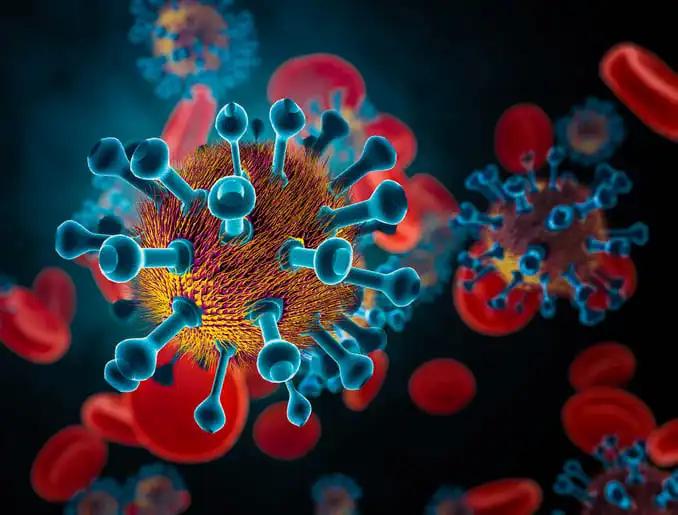KEY TAKEAWAYS
- This phase 3 trial studied the efficacy and safety of Vedolizumab (VDZ) compared to a placebo (PBO) in preventing lower gastrointestinal (GI) acute graft-versus-host disease (aGvHD).
- The primary endpoint was lower GI aGvHD-free survival by Day +180 post-allo-HSCT. Secondary endpoints included relapse-free survival and grade C-D aGvHD-free survival.
- The trial demonstrated the effectiveness of Vedolizumab in improving lower GI aGvHD-free survival after allo-HSCT compared to a placebo.
This phase 3 randomized, placebo-controlled trial assessed the efficacy and safety of Vedolizumab (VDZ) compared to a placebo (PBO) in preventing lower gastrointestinal (GI) acute graft-versus-host disease (aGvHD). The study enrolled patients (pts) aged 12 years and older undergoing initial allogeneic hematopoietic stem cell transplantation (allo-HSCT) to treat hematological malignancies from unrelated donors.
The unrelated donors were selected based on human leukocyte antigen (HLA) compatibility, either 8/8 or 7/8 matched (permitting a single mismatch at HLA-A, -B, -C, and HLA-DRB1). All pts received a standard regimen-GvHD prophylaxis, including a combination of a calcineurin inhibitor and methotrexate or mycophenolate mofetil. The study’s primary endpoint was survival without lower GI acute GvHD (aGvHD) by Day +180 following the allo-HSCT. Additional secondary endpoints were assessed by Day +180. Incidences of aGvHD were documented and staged as per aGvHD Clinical Stage criteria, while the severity of aGvHD was graded using the IBMTR system. Adverse events (AEs) were systematically collected throughout the study.
In the study, 333 pts were randomized and received allo-HSCT, with 165 in the placebo group (PBO) and 168 in the VDZ group. The median age of the pts was 55 years, and 91% of them received allo-HSCT from an HLA-matched donor with an 8/8 match. Among the pts, 53% received a myeloablative conditioning regimen, and 41% received antithymocyte globulin (ATG). The baseline clinical and transplant characteristics were well-balanced between the two groups. The common indication for transplantation was myeloid malignancies (77%), and 78% were in their first complete remission. The primary endpoint, which assessed lower GI aGvHD-free survival by Day +180 after allo-HSCT, was achieved with a rate of 70.9% in the PBO compared to 85.5% in the VDZ (HR= 0.45, 95% CI 0.27, 0.73; p < 0.001). The incidence of lower GI aGvHD was 18.8% with PBO and 7.1% with VDZ. Secondary endpoints, including lower GI aGvHD-free and relapse-free survival by Day +180 (HR = 0.56, 95% CI 0.37, 0.86; p = 0.0043), and grade C-D aGvHD-free survival involving any organ by Day +180 (HR = 0.59, 95% CI 0.39, 0.91; p = 0.0204), were also met. The incidence of non-relapse mortality by Day +180 favored the VDZ group (HR = 0.48, 95% CI 0.22, 1.04; p = 0.0668). Treatment-related AEs were reported in 25% of the placebo group compared to 28% of the VDZ group. Serious AEs were observed in 69% of pts treated with PBO and 71% with VDZ.
The outcomes of this phase 3 trial successfully achieved its primary objective, revealing an improvement in lower GI aGvHD-free survival through VDZ compared to PBO while maintaining a similar safety profile. Significantly, this study marks the first positive phase 3 investigation targeting the specific prevention of lower GI aGvHD.
Source: https://ebmt2023.abstractserver.com/program/#/details/presentations/1674
Clinical Trial: https://classic.clinicaltrials.gov/ct2/show/NCT03657160
Chen. Y., Mohty, M., Zeiser, R., Teshima, T., Takanami, Y., Rossiter, G., Jansson, J., Fløisand, Y.



